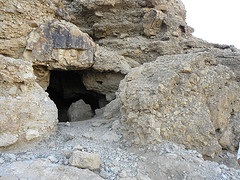Dead Sea Scrolls Gone Digital

On Tuesday the Israel Antiquities Authority, the organization that cares for the Dead Sea Scrolls, announced Tuesday that it was partnering with Google’s research and development team in Israel in preparation to upload the newly digitized images of what may be the most notable archaeological find ever made.
New imaging technology will be used to digitize the scrolls, which hold the earliest known texts of almost every book of the Hebrew Bible, except the Book of Esther. In doing so, the antiquities authority believes it will guarantee the conservation and erudition of the texts for the future.
Not needing to expose the delicate remains of parchment and papyrus to the harmful effects of light and air is a central benefit in posting the documents online.
The new imaging technology supposedly also makes previously indecipherable sections of the manuscripts legible, Pnina Shor, project manager at the antiquities authority said. “Every new exposure is a new field for scholarly research.”
More than two years ago, the antiquities authority established a pilot imaging venture wherein a new system developed by MegaVision, a United States digital imaging company, allowed digital imaging in various wavelengths in the maximum resolution achievable. The program will be mounted in its laboratories in early 2011 and an initial rendering of the scrolls may be online within six months.
The new found accessibility is a turning point for the scrolls, as access has been limited to a select few scholars for decades after the scrolls were excavated in caves near the Dead Sea east of Jerusalem.
“Google’s mission is to organize the world’s information and to make it accessible,” remarked Proffessor Yossi Mtias, director of the company’s Israel-based research and development center. The scholars will soon be able to peruse the scrolls on the Internet in a myriad of languages and formats, as well as rearrange the fragments with the click of a mouse, possibly resulting new findings.
With major donations from the Leon Levy Foundation and the Arcadia Foundation, the project has preliminary financing of $3.5 million.
To reach reporter Eleanor Walper click here.
Sign up for Neon Tommy's weekly e-mail newsletter.



